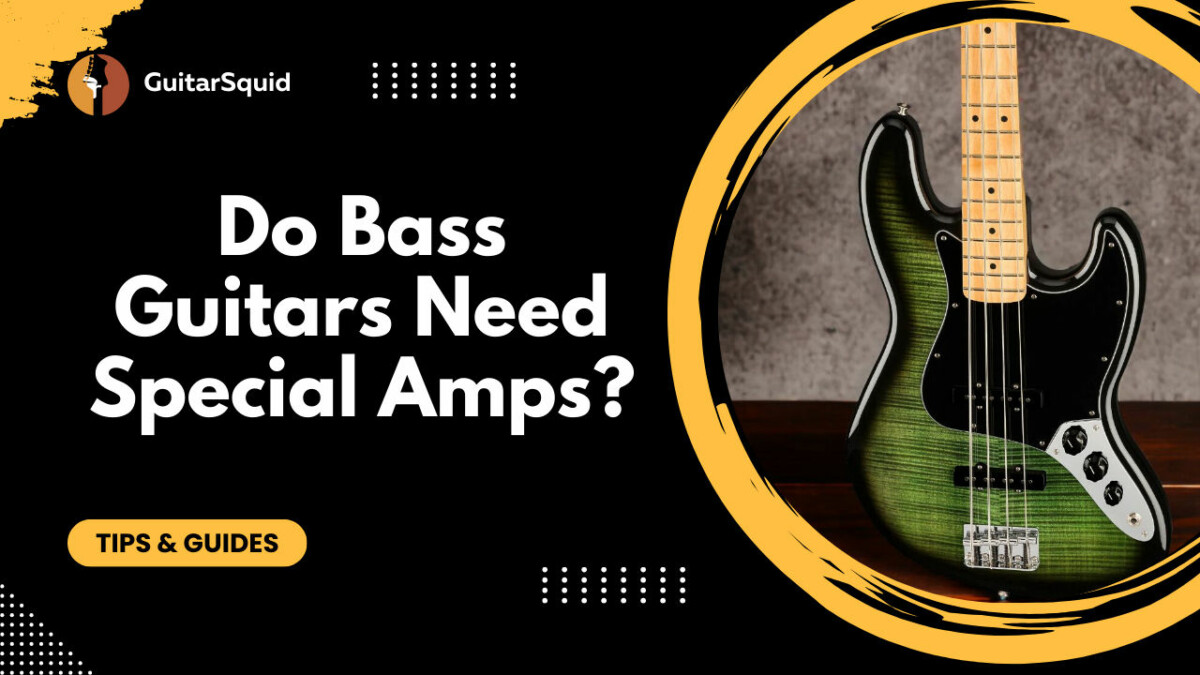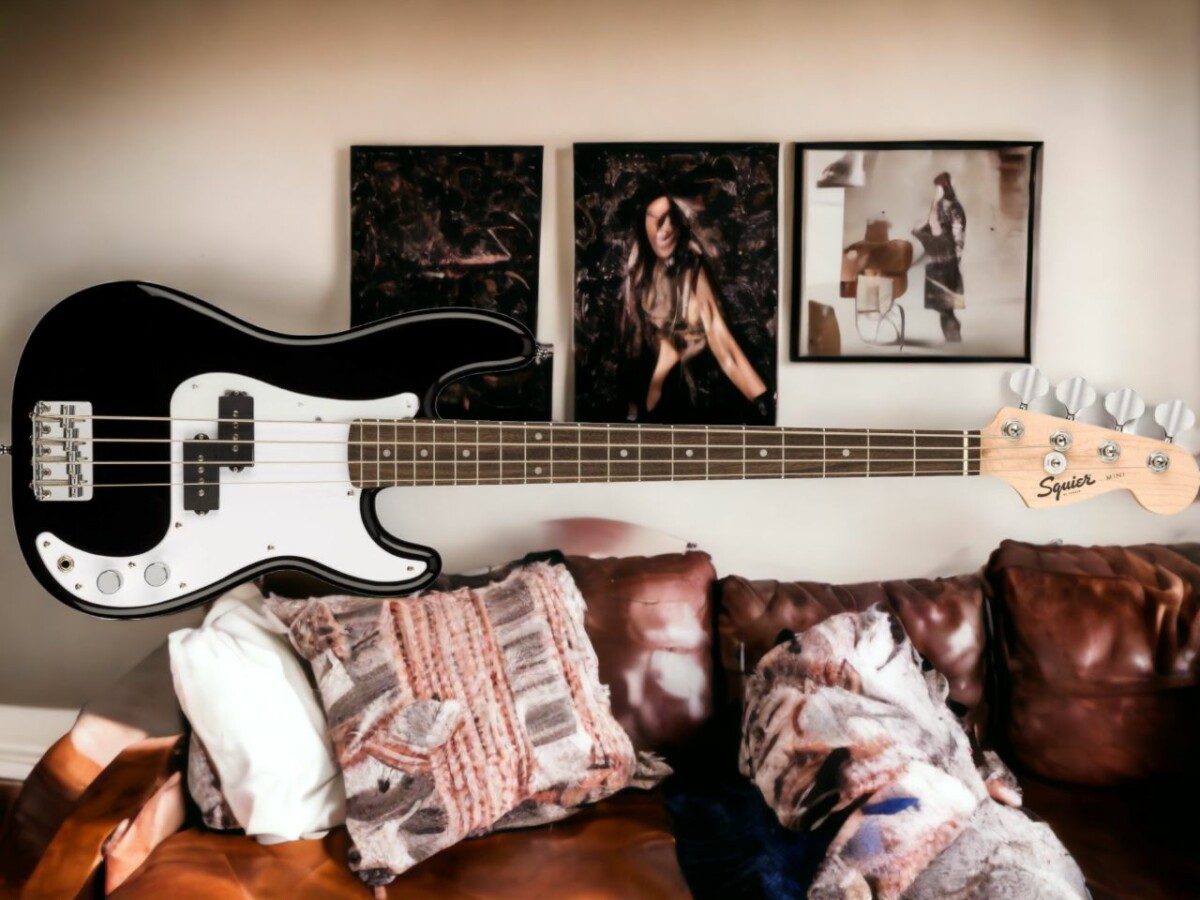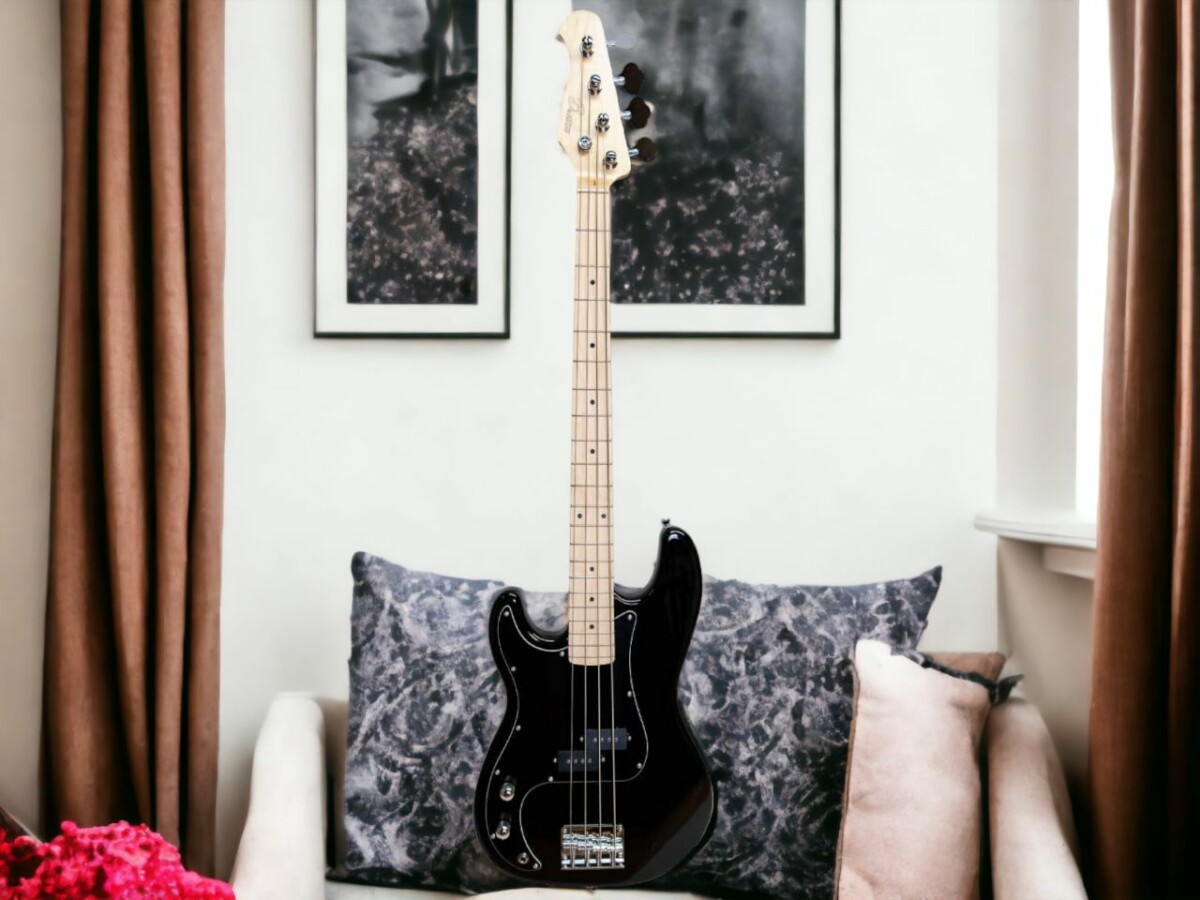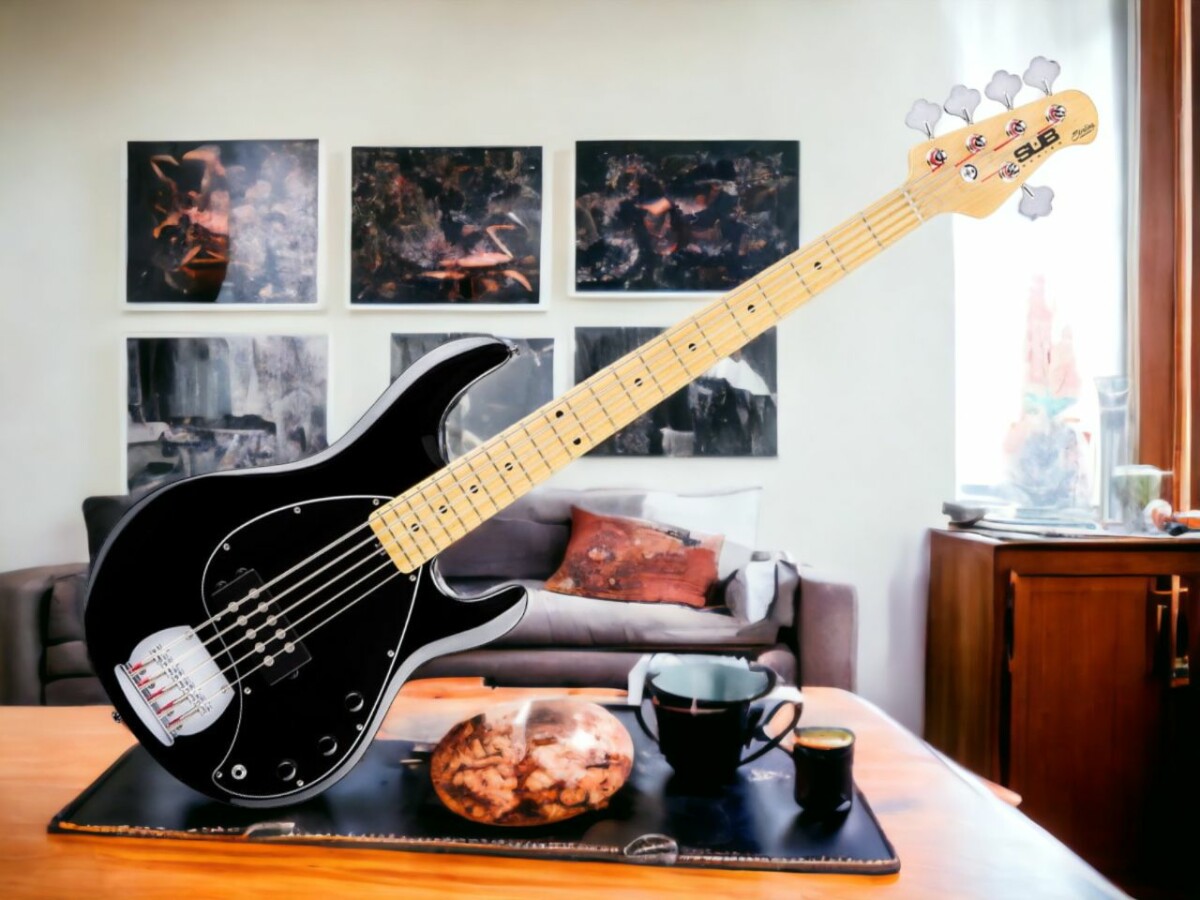So, you’re part of that cool 40% of bassists who’ve got more than just one guitar, aren’t you?
But have you ever stopped to consider how many you actually need? It’s not as straightforward as you might think.
Your needs could vary depending on whether you’re gigging, looking for a fresh sound, or just messing around with different tunings.
The kind of music you play, your personal style, and yes, even how much your partner can tolerate all play a role.
So why don’t we jump right in? We’ll balance what you want against what you need, and take a closer look at the fascinating world of bass guitars.
You never know, you might just uncover something you never knew before.
The Balance Between Need and Want in Bass Guitar Ownership
You really only need one bass guitar to start playing and learning. However, as you progress or explore different genres, you might want more for varied sounds and tunings.
For instance, have you ever considered the loudness of some bass guitars? Or pondered if some bass guitars might be too heavy for extended gigs?
It can be a real struggle, you know, trying to figure out the right number of bass guitars to own. It’s not just about stacking up on instruments – quality trumps quantity, always.
There’s a real thrill, a kind of high, that you get when you add another bass guitar to your collection. Each one brings a new vibe, a unique sound, a different feel when you play it. And if you’re considering adding an Epiphone to your collection, you might be wondering, are Epiphone bass guitars good?
But here’s the kicker – you gotta make your collection count. It’s all about finding that perfect balance based on how you jam. Maybe you need one bass for jazz and another for rock? That’s legit. But having a lineup of ten similar basses? That’s a bit extra, don’t you think?
In the professional music world, it’s all about being practical and versatile. Your music should be a reflection of your skills, not how many guitars you own.
Never forget this, a true artist can still rock the world with just one well-selected bass guitar.
The Importance of Having a Backup Bass Guitar
If you’ve been jamming at gigs, you’ve probably clued into why it’s smart to have a backup bass guitar ready to roll. It’s not just about being geared up for the occasional broken string or electronic glitch. There’s a whole lot more juiciness to having a couple of basses in your gig arsenal:
- Flexibility: Different basses bring different vibes. You can swap them out depending on the feel of each track.
- Experimentation: You can mess around with the settings, try out new tunings, or switch up your playing style without messing with your main squeeze.
- Reliability: Having a backup means your jam session keeps going, even if tech issues try to kill your vibe.
And let’s not forget, the support of your partner when it comes to owning multiple bass guitars is a massive factor. So, remember, the key to a chill home life and a killer gig might just be having that backup bass ready to go.
Exploring Tonal Variety With Multiple Bass Guitars
Building up a collection of bass guitars isn’t just for show, it’s more like a deep dive into the world of tones and sounds each of these bad boys can produce. It’s like, each bass guitar has its own personality, you know? They all have their unique vibes that can radically alter your playing style.
Take a P-Bass, for instance. It’s got this punchy, growly sound that’s just out of this world. On the flip side, a Jazz Bass has a smoother, mellower tone that’s more like a cool breeze on a hot day.
And, ever tried a 5-string bass? That’s a whole different ball game. It adds a serious low-end punch to your sound that’s just epic. And that’s the beauty of it all – it’s all about what you like, what your style is. It’s not about what you need, it’s about what each bass brings to the table… or rather, to your music. It’s like painting with a whole new set of colors, adding dimensions to your creation that opens up a world of possibilities.
The Practicality of Owning Bass Guitars for Alternate Tunings
So, you’ve already got a bass for your standard tuning – nice one. But let’s say you’re starting to dabble in the world of alternate tunings. Having a second, or even a third, bass could be a real game-changer, cutting down the time and hassle of constantly switching up. But, you’ve got to keep it realistic – these things aren’t cheap. It’s all about striking the right balance between the convenience and the cost.
Here are a few things you might want to mull over:
- Flexibility: Some basses, particularly those rocking active/passive pickups, are total champs at different tunings. They can switch up without skipping a beat.
- Price Tag: More bass guitars equals more cash out of pocket. You’ve got to think about whether the convenience is really worth the hit to your wallet.
- Time Saver: If you’re constantly swapping tunings, having a dedicated bass for each could be a real time-saver.
At the end of the day, deciding to stock up on multiple bass guitars for alternate tunings should really come down to your specific needs, what you can afford, and your musical goals.
The Role of Experimentation in Determining the Number of Bass Guitars You Need
Experimentation is the real MVP when it comes to figuring out the number of bass guitars you need. But it’s not just about hoarding a bunch of different sounds. Let’s break it down: in the music industry, it’s all about pushing the envelope. You’re out here trying to discover fresh tones and carve out your own unique sound, right? That’s where having multiple bass guitars comes in clutch.
Take a P-Bass and a J-Bass, for example. They’re like apples and oranges in terms of tonal characteristics, giving you the flexibility to experiment and vibe with a variety of genres.
But let’s keep it 100, there’s another factor to consider: your significant other’s thumbs-up or thumbs-down on your growing guitar collection. Yeah, you’re passionate about your music, but you’ve also got to keep the peace at home. So, it’s all about finding that sweet spot between your thirst for musical exploration and keeping things chill on the home front. When it comes down to it, these are the real deciding factors behind how many basses you actually need.




